
The Zakat, Tax, and Customs (ZTC) Conference is an event organized by the Zakat, Tax, and Customs Authority (ZATCA) in Riyadh City in 2023, under the theme “An Integrated Digital System for Sustainable Economy and Improved Security.” Objectives of ZTC Conference The conference was attended by commissioners and heads of international tax authorities, local, regional, and international leaders, and experts specializing in tax, zakat, and customs administration. It discussed major global and l...
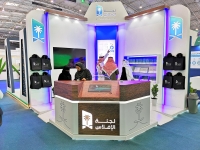
The Bankruptcy Commission in the Kingdom of Saudi Arabia is an independent government commission established in 2021. It has several mandates, including managing administrative liquidation procedures, licensing bankruptcy trustees and experts after they acquire the necessary skills and knowledge through specialized qualification programs provided by the commission, and preparing and publishing a list of qualified professionals on its official website. The commission also works to enhance the ef...
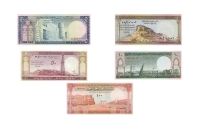
The Saudi Currency is the official currency of the Kingdom of Saudi Arabia . It is known as the 'Saudi Riyal' and abbreviated as 'SAR'. On February 20, 2025, the Custodian of the Two Holy Mosques, King Salman Bin Abdulaziz Al Saud , approved the official symbol of the Saudi Riyal. Inspired by Arabic calligraphy, the symbol is now used in all financial and commercial transactions at the local, regional, and international levels. Saudi Arabia coined its first currency issue in...

Financial Services in the Kingdom of Saudi Arabia refer to the activities related to liquidity management and movements through banks, financing companies, investment and financial brokerage companies, and insurance companies in Saudi Arabia. Development of financial services in Saudi Arabia Technical advancements introduced to financial transactions contributed to facilitating the operations of the financial services sector. These developments were initiated in 1990 when the Saudi Payments Net...

The Law of Payments and Payment Services in the Kingdom of Saudi Arabia is a set of rules, tools, and procedures that regulate the operations of the payment sector and its services in the Kingdom. It aims to protect the rights of the parties interacting with the law and to stimulate innovation and competition in the payment sector and its services. The history of the Law of Payments and Payment Services in Saudi Arabia The Law of Payments and Payment Services was issued in 2021 during the reign...
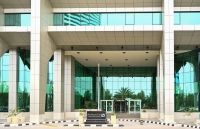
Under the 'Capital Market Law' issued in 2003, the Capital Market Authority was established to oversee the regulation and development of the Saudi capital market and issue the regulations, rules, and instructions necessary to implement the provisions of the Capital Market Law. The Capital Market Authority is a governmental authority with financial and administrative independence and reports directly to the Prime Minister. It has many powers, including regulating and developing the cap...
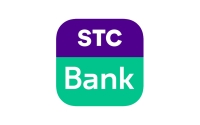
Yes, there are digital banks in the Kingdom of Saudi Arabia . In June 2021, the Saudi Council of Ministers issued a resolution to approve the licensing of two local digital banks by converting the Saudi Digital Payments Company (stc Pay) into a local digital bank to conduct banking activities in the Kingdom, with a capital of SAR 2.5 billion (stc Bank). Additionally, an alliance of several companies and investors led by Abdulrahman Bin Saad al-Rashed and Sons Company established a local dig...

1959 The first banknote issuance of Saudi currency during the reign of King Saud Bin Abdulaziz Al Saud, with five denominations: SAR100, SAR50, SAR10, SAR5, and SAR1. 1968 The second issuance of Saudi currency during the reign of King Faisal Bin Abdulaziz Al Saud, with five denominations: SAR100, SAR50, SAR10, SAR5, and SAR1. 1976 The third issuance of Saudi currency during the reign of King Khalid Bin Abdulaziz Al Saud, with five denominations: SAR100, SAR50, SAR10, SAR5, and SAR1. 1984 The fo...

Tawilah al-Ahsa currency, or ' al-Tawilah ' (Arabic for long), is a local coin minted from copper. It is considered one of the oldest currencies that were circulated. It was used locally during the era of the Second Saudi State . One of these coins, dating back to 1356, was found in al-Hufuf Governorate. The shape of Tawilah al-Ahsa currency differs from other currencies, as it resembles a hair clip or tweezers. It has three denominations; gold, silver, and bronze. Before institutiona...
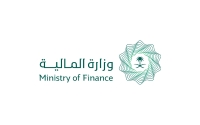
The Kingdom of Saudi Arabia's 2023 budget is a statement issued by the Ministry of Finance in the Kingdom, detailing the state's revenues, expenditures, and the financial surplus or deficit for that year. It was announced on December 7, 2022, with revenues amounting to SAR1,130 billion, expenditures at SAR1,114 billion, and a surplus of SAR16 billion. Priorities in Saudi Arabia's 2023 Budget The 2023 budget prioritizes capital expenditure on projects aligned with regional and sec...

Since 1952 , the Saudi currency has been printed, minted, and issued at the Saudi Central Bank 'SAMA' (formerly the Saudi Arabian Monetary Agency). As per Saudi laws, this privilege is exclusive to the bank, and no one else may exercise this right. The Council of Ministers determines the denominations of coins and banknotes, their shapes, designs, engravings, dimensions, contents, and all matters related to their descriptions and expenses, as well as storage locations, molds, and sc...
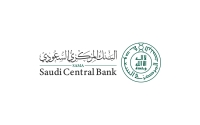
1902 Before the Founding King Abdulaziz Bin Abdulrahman Al Saud regained Riyadh City , the barter system was prevalent for conducting trade exchanges. 1902-1922 In the early days of the unification of the Kingdom of Saudi Arabia, commercial transactions were conducted using foreign currencies made of gold, silver, bronze, and copper. 1922 The word 'Najd' was added to the commonly used currency at the time, making it the officially recognized currency of the Sultanate of Najd. 1925 The...